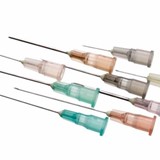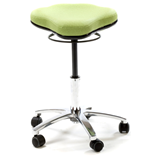At the heart of the problem is a broken system of medical research and development (R&D) which largely disregards the health needs of millions of people in developing countries.
"This week is not just about countries signing cheques," said Dr. Christophe Fournier, President of Médecins Sans Frontières' (MSF) International Council. "It's about changing the rules of medical innovation - coming up with new proposals that ensure the drugs we need are developed and are made affordable. But with so many vested interests involved, will governments be bold enough to take that step?"
As the meeting opens, the international medical humanitarian organisation, MSF calls on governments to show the courage needed to push essential reforms through, so that new life-saving drugs, diagnostics and vaccines are developed for people in poor countries.
The failure of today's system is well illustrated by tuberculosis (TB). The most widely used test to diagnose TB was developed in the 1880s and actually misses more patients than it detects. With the spread of resistant strains, the drugs to treat TB are growing ever more ineffective, and are unable to stem the resurgence of the disease. But funding for TB research remains virtually flat.
"We won't give up treating people with the TB drugs that we have right now, but to really get TB under control, we desperately need new drugs," said Dr. Liesbet Ohler, MSF's Medical Deputy Project Coordinator in Kenya. "I hope that Governments find ways to mobilise the level of research it will take to come up with effective new treatments. If not, the future for a disease like TB looks pretty bleak."
New initiatives such as prize funds are being explored, which could help steer medical R&D towards where it is most needed, and find a way of paying for medical R&D in a way that does not mean drugs are priced too high. MSF says it is looking for governments to support new mechanisms that allow this to happen.
"The R&D system status quo means that doctors working in developing countries are stuck using old and failing treatments and tools for diseases like tuberculosis," said Dr. Tido von Schoen-Angerer, Director of MSF's Access Campaign. "There are some big ideas on the table that could help produce urgently needed medical products for developing country diseases - what we really need now is the deep commitment of governments. Relying exclusively on philanthropic organisations and charities is not a solution."
Today's system for developing new drugs is very heavily dependent on patent monopolies. The consensus, supported by a UN report in 2006, is that this is not working: the prices of health products are kept artificially high, and are reserved for the few who are able to pay. At the same time, the diseases that mostly affect the poor are neglected, regardless of how many lives they claim.
This week's summit concludes a two-year process known as the Intergovernmental Working Group on Public Health, Innovation and Intellectual Property (IGWG). The World Health Organization hosting the summit has been instructed to deliver new ways of paying for R&D other than patent monopolies, so that medical innovation is steered towards where it is needed, and that it delivers products that are priced as low as possible.
- Suppliers
- New to MedicalSearch? Book a Demo
- Advertise with us
- Login
- Email Marketing
- Buyers
- Get Quotes
- Articles & Ideas
- Login
- Subscribe to newsletter
- My Details
- Get Quotes
- Accident & Emergency Care
- Aged Care & Disability
- Anaesthesia & Respiratory Care
- Beauty & Wellness
- Cardiology & Cardiac Surgery
- Dental Care & Oral Surgery
- Diagnostic Instruments & Medical Imaging
- Disinfection & Sterilisation
- ENT & Audiology
- Gynaecology & Obstetrics
- Homecare & Consumer Medical
- Hospital Equipment & Supplies
- Intensive Care Unit
- Laboratory & Pathology
- Medical Apparel
- Medical Devices & Products
- Medical Fridges & Freezers
- Medical Storage & Filing
- Medical Waste Management
- Optometry & Ophthalmology
- Orthopaedics & Podiatry
- Paediatrics & Neonatology
- Patient Monitoring & Management
- Physiotherapy & Rehabilitation
- PPE & Infection Control
- Single Use Medical Consumables
- Surgical Tools & Supplies
- Treatment Beds, Tables & Couches
- Veterinary Equipment
- Wheelchairs & Mobility Aids
- Get Quotes
- Accident & Emergency Care
- Aged Care & Disability
- Anaesthesia & Respiratory Care
- Beauty & Wellness
- Cardiology & Cardiac Surgery
- Dental Care & Oral Surgery
- Diagnostic Instruments & Medical Imaging
- Disinfection & Sterilisation
- ENT & Audiology
- Gynaecology & Obstetrics
- Homecare & Consumer Medical
- Hospital Equipment & Supplies
- Intensive Care Unit
- Laboratory & Pathology
- Medical Apparel
- Medical Devices & Products
- Medical Fridges & Freezers
- Medical Storage & Filing
- Medical Waste Management
- Optometry & Ophthalmology
- Orthopaedics & Podiatry
- Paediatrics & Neonatology
- Patient Monitoring & Management
- Physiotherapy & Rehabilitation
- PPE & Infection Control
- Single Use Medical Consumables
- Surgical Tools & Supplies
- Treatment Beds, Tables & Couches
- Veterinary Equipment
- Wheelchairs & Mobility Aids
Trusted by 500,000+ Australian medical buyers
Buyers
- Discover products & solutions
- Login
- Subscribe To Newsletter
- Browse All Products
- Read Articles
Suppliers
Advertise
- Promote your products & solutions
- New to MedicalSearch? Book a Demo
- Login / Forgot Password
- Advertise Your Products
- Success Stories
- Email Marketing
- Suppliers
- Advertise with us
- Login
- Email Marketing
- Buyers
- Get Quotes
- Articles & Ideas
- Login
- Subscribe to newsletter
- My Details
Get Quotes
- Accident & Emergency Care
- Aged Care & Disability
- Anaesthesia & Respiratory Care
- Beauty & Wellness
- Cardiology & Cardiac Surgery
- Dental Care & Oral Surgery
- Diagnostic Instruments & Medical Imaging
- Disinfection & Sterilisation
- ENT & Audiology
- Gynaecology & Obstetrics
- Homecare & Consumer Medical
- Hospital Equipment & Supplies
- Intensive Care Unit
- Laboratory & Pathology
- Medical Apparel
- Medical Devices & Products
- Medical Fridges & Freezers
- Medical Storage & Filing
- Medical Waste Management
- Optometry & Ophthalmology
- Orthopaedics & Podiatry
- Paediatrics & Neonatology
- Patient Monitoring & Management
- Physiotherapy & Rehabilitation
- PPE & Infection Control
- Single Use Medical Consumables
- Surgical Tools & Supplies
- Treatment Beds, Tables & Couches
- Veterinary Equipment
- Wheelchairs & Mobility Aids
Get Quotes
- Accident & Emergency Care
- Aged Care & Disability
- Anaesthesia & Respiratory Care
- Beauty & Wellness
- Cardiology & Cardiac Surgery
- Dental Care & Oral Surgery
- Diagnostic Instruments & Medical Imaging
- Disinfection & Sterilisation
- ENT & Audiology
- Gynaecology & Obstetrics
- Homecare & Consumer Medical
- Hospital Equipment & Supplies
- Intensive Care Unit
- Laboratory & Pathology
- Medical Apparel
- Medical Devices & Products
- Medical Fridges & Freezers
- Medical Storage & Filing
- Medical Waste Management
- Optometry & Ophthalmology
- Orthopaedics & Podiatry
- Paediatrics & Neonatology
- Patient Monitoring & Management
- Physiotherapy & Rehabilitation
- PPE & Infection Control
- Single Use Medical Consumables
- Surgical Tools & Supplies
- Treatment Beds, Tables & Couches
- Veterinary Equipment
- Wheelchairs & Mobility Aids
Trusted by 500,000+ Australian medical buyers












